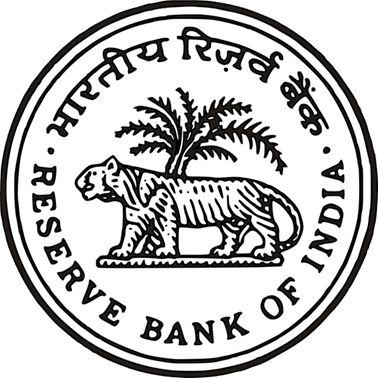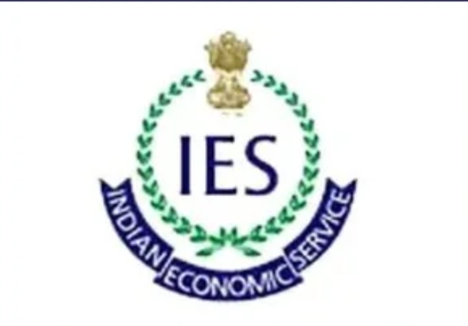Indian Economy : RBI DEPR and UPSC IES Exam
Why This Indian Economy Course is Loved by Candidates
- Validity : 1 Year from Enrollment
- We begin from the Basics and gradually build towards Advance Concepts
- 60+ Structured and Crystal-Clear Videos
- Covers around 80% of RBI DEPR Indian Economy Syllabus and Indian Economic Service Exam Syllabus
- Only Pre-Recorded Videos. No Live Classes.
- No pdf notes. You need to make notes from videos
- Useful for all related exams like UPSC IES , SEBI Research , PFRDA Research
- Videos can be accessed only from the Mobile Phone or Tablet
- Download the App to Watch Trial Videos and Enroll in the Course
- Use of only one Device Permitted.
- Use of multiple Devices leads to Termination of Access. No Refund Applicable
Enrollment / Payment Procedure
- Download the App. After Login to the App, go to 'Store'
- After Payment, the Videos can be accessed only through the App
- Trial Videos are available on the App (can be accessed by everyone)
Indian Economy for RBI DEPR and Indian Economic Service Exam
Mastering Indian Economy is important for qualifying both the Indian Economic Service (UPSC IES/ISS) Exam and the RBI DEPR Exam. In RBI DEPR Exam, the knowledge of Indian Economy is tested at Phase-1 Exam and the Phase-2 Exam. Similarly, in Indian Economic Service Exam, the General Studies (GS) and General Economics-IV (GE-IV) contains questions from Indian Economy. Further, at Interview stage of both RBI DEPR and UPSC IES/ISS Exam, candidates’ understanding of Indian Economy is tested.
Welcome to our comprehensive online video course on Indian Economy, tailored specifically for candidates preparing for the Indian Economic Service Exam and the RBI DEPR Exam. Starting from the basics, this course will cover major concepts that candidates need to prepare as a part of RBI DEPR Exam Syllabus and Indian Economic Service Exam Syllabus.
The Indian Economy course offered by Testonomics will help you build a strong base & conceptual clarity for topics which many candidates usually find difficult and thus is suited to a beginner. Once you complete the course diligently, watch the videos 2-3 times, makes notes & revise them 3-4 times), you will feel that this course has done justice to your preparation.
Preparing Indian Economy can be Challenging !
Many candidates struggle with preparing Indian Economy, especially when they are a beginner in preparation of these exams, due to various reasons. First, the syllabus is vast and complex, encompassing a wide range of topics, which can be overwhelming. Second, candidates do NOT undergo as in-depth coverage of Indian Economy topics in their undergraduation / postgraduation, as other subjects such as Microeconomics, Macoeconomics, etc. Further, the dynamic nature of the Indian economy means that candidates must stay updated with current affairs, adding another layer of complexity to their preparation.
The detailed IES Indian Economy Syllabus and RBI DEPR Indian Economy Syllabus is given below :
UPSC IES Indian Economy (GE-4) Syllabus
- History of development and planning: Alternative development strategies—goal of self-reliance based on import substitution and protection, the post-1991 globalisation strategies based on stabilisation and structural adjustment packages: fiscal reforms, financial sector reforms and trade reforms
- Federal Finance: Constitutional provisions relating to fiscal and financial powers of the states, Finance Commissions and their formulae for sharing taxes, Financial aspect of Sarkaria Commission Report, Financial aspects of 73rd and 74th Constitutional Amendments
- Budgeting and Fiscal Policy: Tax, expenditure, budgetary deficits, pension and fiscal reforms, Public debt management and reforms, Fiscal Responsibility and Budget Management (FRBM) Act, Black money and Parallel economy in India—definition, estimates, genesis, consequences and remedies.
- Poverty, Unemployment and Human Development :Estimates of inequality and poverty measures for India, appraisal of Government measures, India’s human development record in global perspective. India’s population policy and development
- Agriculture and Rural Development Strategies : Technologies and institutions, land relations and land reforms, rural credit, modern farm inputs and marketing— price policy and subsidies; commercialisation and diversification. Rural development programmes including poverty alleviation programmes, development of economic and social infrastructure and New Rural Employment Guarantee Scheme
- India’s experience with Urbanisation and Migration : Different types of migratory flows and their impact on the economies of their origin and destination, the process of growth of urban settlements; urban development strategies.
- Industry: Strategy of industrial development— Industrial Policy Reform; Reservation Policy relating to small scale industries. Competition policy, Sources of industrial finance. Bank, share market, insurance companies, pension funds, non-banking sources and foreign direct investment, role of foreign capital for direct investment and portfolio investment, Public sector reform, privatisation and disinvestment.
- Labour : Employment, unemployment and underemployment, industrial relations and labour welfare— strategies for employment generation—Urban labour market and informal sector employment, Report of National Commission on Labour, Social issues relating to labour e.g. Child Labour, Bonded Labour International Labour Standard and its impact.
- Foreign Trade : Salient features of India’s foreign trade, composition, direction and organisation of trade, recent changes in trade, balance of payments, tariff policy, exchange rate, India and WTO requirements. Bilateral Trade Agreements and their implications.
- Money and Banking : Financial sector reforms, Organisation of India’s money market, changing roles of the Reserve Bank of India, commercial banks, development finance institutions, foreign banks and non-banking financial institutions, Indian capital market and SEBI, Development in Global Financial Market and its relationship with Indian Financial Sector. Commodity Market in India-Spot and Futures Market, Role of FMC.
- Inflation : Definition, trends, estimates, consequences and remedies (control): Wholesale Price Index. Consumer Price Index: components and trends.
RBI DEPR Indian Economy Syllabus
RBI DEPR Phase-1 Indian Economy Syllabus includes Current developments in Indian Economy (Growth, inflation, poverty, unemployment, financial sector developments, external sector developments, fiscal developments, agriculture, industry, infrastructure, and services
RBI DEPR Phase-2 : Module on Indian Economy – Policy and Trends
- Fiscal policy in India: Evolution, scope and limitations, current trends
- Monetary Policy in India: Evolution, Functions of the Reserve Bank of India, Monetary-Fiscal coordination, Inflation targeting, Operating framework of Monetary Policy, Current trends
- Banking and financial sector development in India: Banks and other constituents of Indian financial markets and related developments, Current trends
- Inflation in India: Trends and drivers
- External sector developments in India: Exchange rate management, external debt, Balance of
payments, Current trends - Sectoral and other developments in India: Agriculture, industry, services and social sector-related
developments
How to Prepare Indian Economy for RBI DEPR and Indian Economic Service Exam ?
With Testonomics course on Indian Economy, you can complete around 80% of the syllabus of Indian Economy required for both these exam ; for covering the remaining 20%, you will have to use follow the current affairs and exert individual efforts.
This course on Indian Economy will cover the following topics :
Once you complete the course diligently, watch the videos 2-3 times, makes notes & revise them 3-4 times), you will feel that this course has done justice to your preparation.
Indian Economy Course : FAQs
Will this Indian Economy course include writing practice as well ?
No. This standalone course on Indian Economy will not include any type of writing practice.
Will this Indian Economy course include coverage of all topics mentioned in the syllabus ?
We will cover almost all topics listed in the UPSC IES Syllabus. However, please keep in mind that the candidate will also be required to cover a few topics through self-efforts, amounting to approximately 20% of the total Indian Economy syllabus. For covering this 20%, you will have to following the newspapers / current affairs.
Under this Indian Economy course, will any pdf notes be provided ?
No. Under this Indian Economy course, we will NOT provide any pdf notes. The content will be visible to you on the screen of your mobile phone / iPad / tablet and you will be expected to make notes from there.
What is the duration of total video content ?
After login to the App, click on ‘Store’, then go to Indian Economy course, click on ‘Content’ written on top. Now, you can view how many videos are included in this course and what is the duration of each video.


